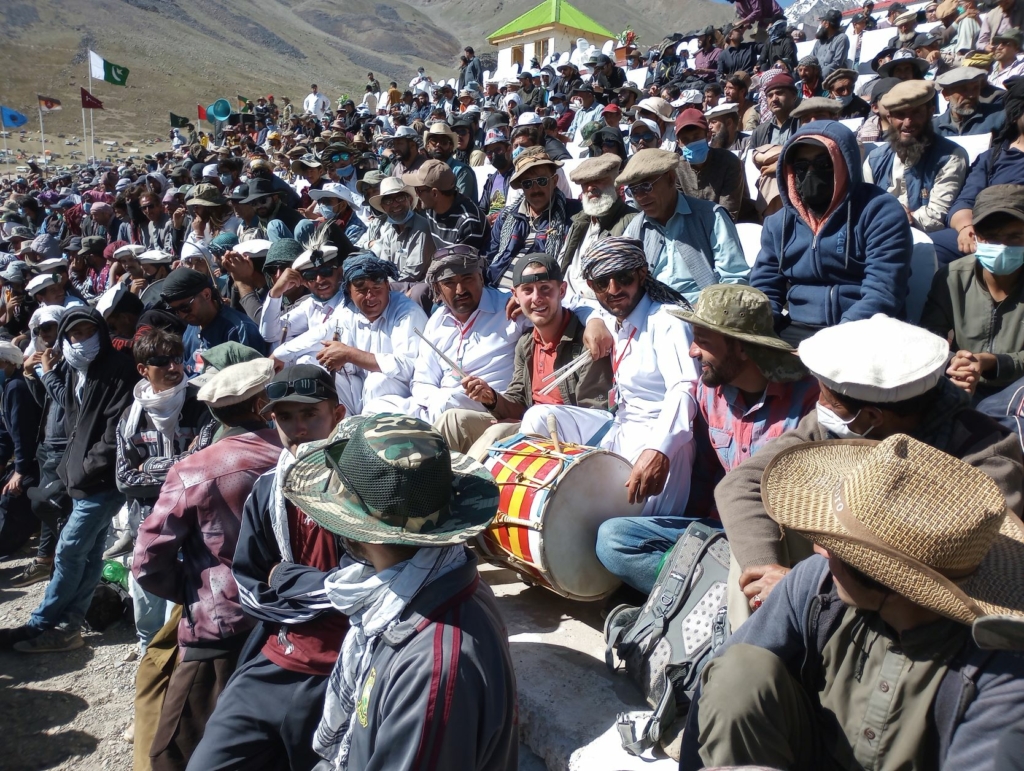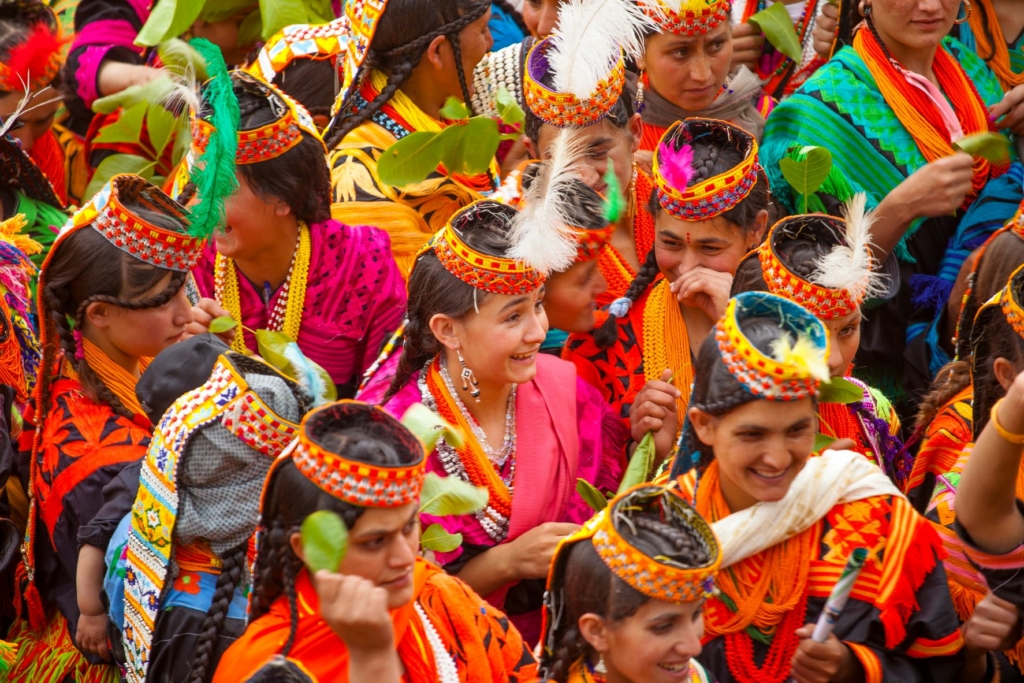The dew on the morning grass, the rushing sound of rivers, and warm sunbeams peeking over jagged mountain peaks started one of the most serene sunrises of my life. Where is this paradise on Earth? This scenic natural beauty is Basho Valley, Pakistan, located in the heart of Pakistan’s northern mountains.
The rough route to get there makes Basho Valley, Pakistan a diamond in the rough with a worthwhile bumpy ride to experience the surreal sights of pristine natural plains. The valley is located in one of the four regions of Pakistan known as Gilgit-Baltistan in the North. Situated at 3,600 meters (11,800 feet), Basho Valley is home to a number of glaciers including the most famous Basho Glacier. The colossal mountain ranges and breathtaking views make Basho Valley, Pakistan’s hidden treasure attracting mountaineers and trekkers from around the world.
My first visit to Basho Valley was a one-night camping trip, with all accessible amenities offered at the campgrounds. The night was well worth the stay, as we enjoyed chai or milk tea, watched distant wild livestock grazing, and experienced the most mesmerizing sunrise.
Getting to Basho Valley
The location of Basho Valley, Pakistan is not far from Skardu City about an hour and a half away. This valley is intertwined with a vast pine forest surrounded by towering granite mountains and white glacier tops. Jeep tours are the best way to travel into Basho Valley with an experienced driver due to the extremely bumpy roads.
Leaving Skardu City, the journey begins moving toward crossing the Skardu bridge onto the Gilgit-Skardu link road. After about 20 minutes, an epic wooden suspension bridge stands as the separation point between Basho Valley and Skardu.
Travel in the Valley
Starting on the harsh rocky road to the top of Basho Valley, the single-lane road provides minimal space for vehicles to pass each other. The scenic route spirals upward through the villages to the final destination of Sultanabad and is accompanied by bumps, sharp turns, and countless switchbacks. Thankfully, the ride is made bearable with witness to numerous cultivated farmlands from potatoes and wheat to apricots, plums, and grape trees.
Navigating up the valley finally reaching a plateau, the trees suddenly shift to juniper trees, the rivers move horizontally, and colossal mountains surround the plains. A few minutes into the plateau, a vast plain in between the mountain ranges harbors its home with horses, livestock, fish, and campsites in a utopia of natural greenery.
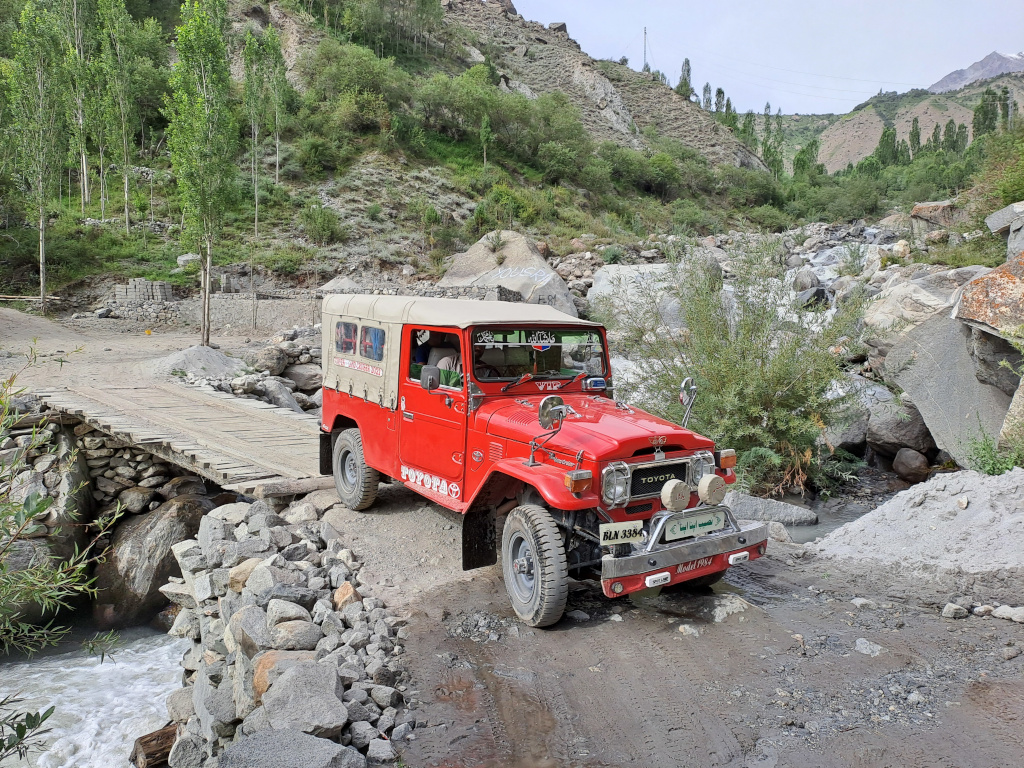
About the Valley
Basho Valley is even home to mountainous snow leopards, ibex, and Marco polo sheep found deep in the forest. Wild horses, cows, goats, and sheep graze among the green plains harmoniously resulting in the stunning sight of an unfiltered preserved natural environment worth the bumpy drive there.
All the lush green alpines and plains not only produce eye-catching sights but a flourishing environment for local villagers to grow crops. Basho Valley is also known as “Raisin Valley” in Balti and for good reason. The Summer heat melts the glaciers on the mountain peaks bringing down rivers of rushing water throughout the valley resulting in ideal conditions for grapes and many other crops. Oftentimes driving up to the top of the Basho Valley at Sultanabad, the street is lined up with fruit and nut vendors every thousand feet! The first fruit stand on my expedition up to Sultanabad Basho had a vast array of mulberries, apricots, jams, walnuts, and raisins. The apricots are a personal favorite, about the size of a golf ball, these tiny apples have sweet juices and tender pulp.
The locally grown apricots in Basho Valley are enjoyed by villagers and are preserved longer through a fruit-drying process. To make apricots into travel-ready dry fruit, the apricots are first rinsed, dipped in sulfur, and laid out in a sunny place for the sun to start cooking. The resulting dried apricots are super nutritious containing many essential vitamins and minerals promoting eye, skin, and gut health according to the locals. The high potassium and antioxidants make this snack a local Pakistani favorite. Buying a bag of dried apricots is inexpensive and easy to travel with making it a worthwhile investment while traveling.
Sultanabad Village
Secluded from the rest of the prying world, the idyllic village of Sultanabad at the top of Basho Valley is an impeccable tranquil beauty for domestic and international tourists to experience peace and bliss. Sultanabad is home to 150 households nestling in the upper reaches of the valley. The entirety of Basho Valley is home to over 4,500 people with functioning stores, schools, and croplands.
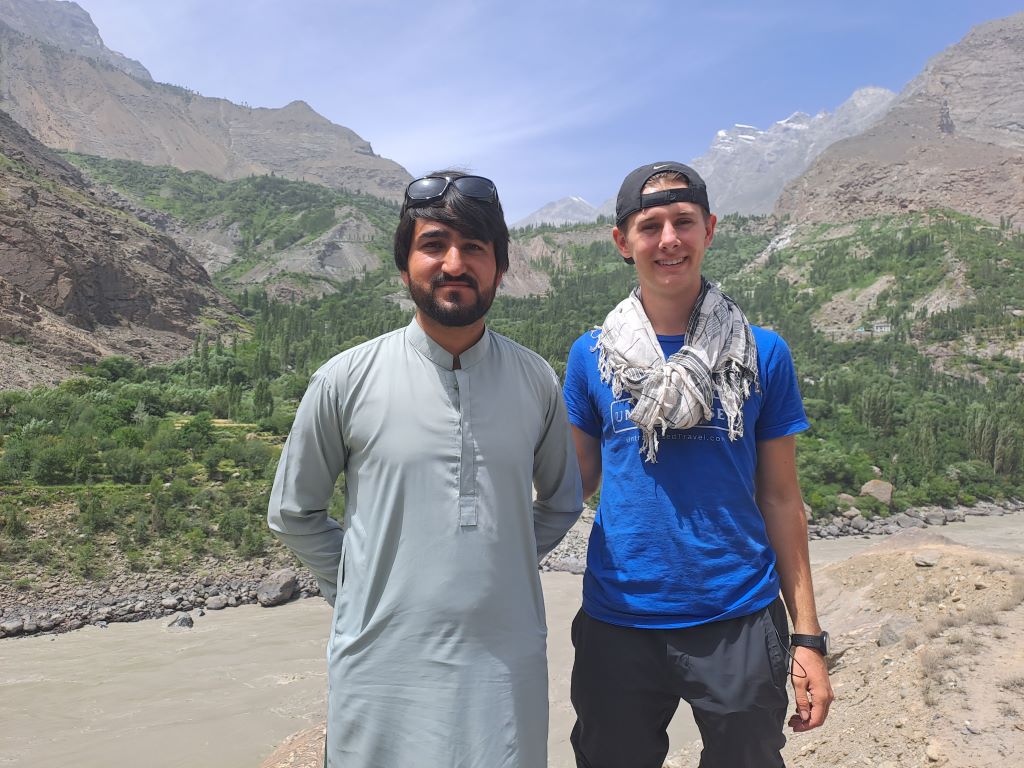
The source of life the village depends on is the Basho Valley River, a confluence of many streams coming from the melting mountain glaciers and a number of springs. However, the entire area is believed to have been covered by a gigantic glacier centuries ago that slowly receded to the mountains over time. The remaining rocks and moraine sit over a bed of ice that locals use as a freezer to store their crops and fruit during the Summer. What remains today, is a virgin juniper forest undisturbed by locals ensuring an epic camping experience.
Weather
The weather at Basho Valley, Pakistan is pleasant ranging from warm enjoyable days to cool evenings and nights. Ideal attire to pack for during the day is light and comfortable clothing and during the night a thick jacket with pants is perfectly suitable. In the chance of rain, the temperature can drop as fast as the rain falls. Staying updated on weather conditions can be helpful in determining whether or not to bring a rain jacket.
My Trip to the Valley
Upon my arrival in Sultanabad Basho, the jeep crew stopped in a small cabin to enjoy tea and local balti cuisine. News traveled fast that a river overflowed with water causing a landslide half a mile down the road and blocking the route to our campsite. Our team had no choice but to horseback through the dangerous flooding waters.
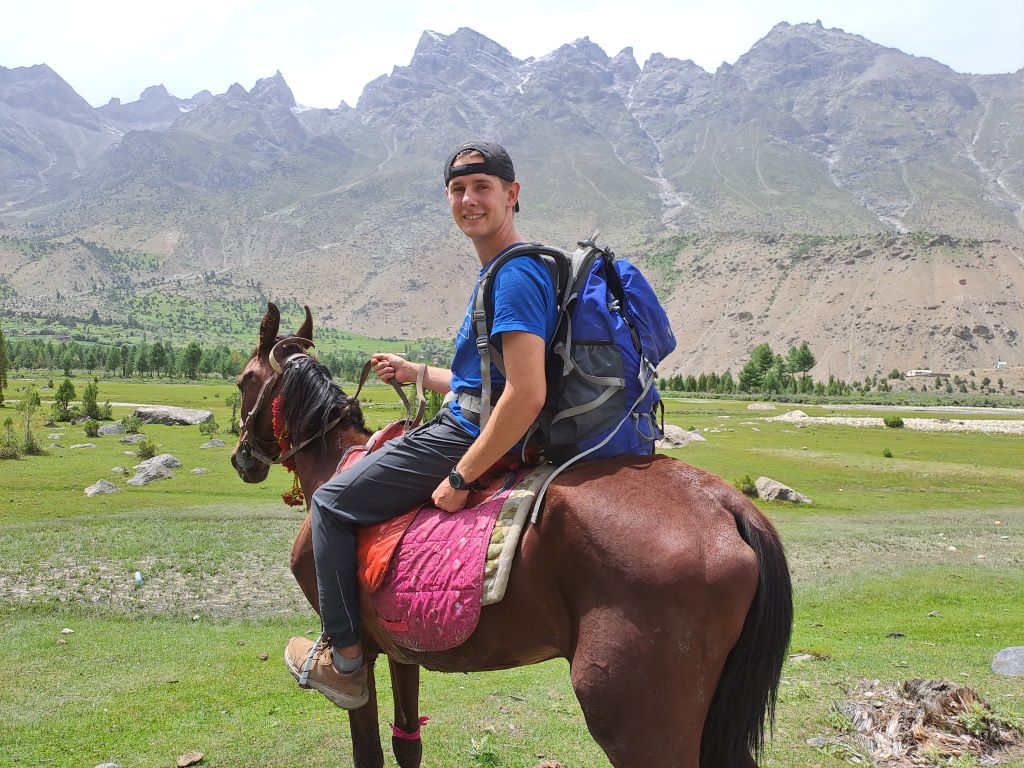
An hour later, the remote mountain villagers brought two horses to deliver us to our camping destination in the thick of the forest. We saddled our 70-liter hiking backpacks on and trotted through the gushing waters. Only 20 minutes into the thicket, we set up base camp with our two-person Swiss tent and campfire into the encompassing nature valley.
Unexpected Guests
Shortly after cooking, uninvited guests decided to join us for dinner. Not realizing the campsite of our choice was indigenous to herds of cows, we could never look away for a minute without them trying to eat our food! We established our territory by yelling and screaming at the cows “ja ja ja!” meaning “go go go!” in the local language Urdu. Locals passing by heard the commotion and joined us for dinner accompanied by homemade chai.
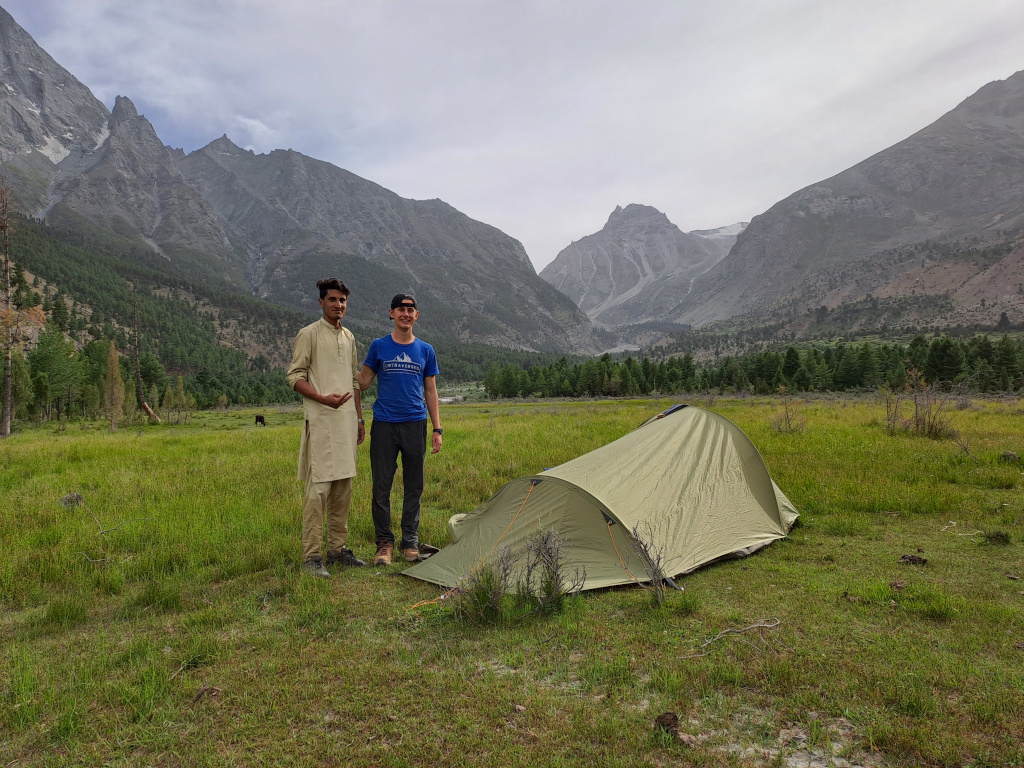
Pakistani Chai
The best cultural norm in Pakistan, which the rest of the world needs to acquire, is drinking chai. Chai is tea made with milk, black tea, water, sugar, and sometimes honey. Our satisfying early dinner fueled us up before the local’s invitation to our next adventure, fishing for trout in the Basho Valley River. During the British era in Pakistan at the end of the 19th century, the Duke of Bedford sent shipments of trout over to Pakistan resulting in the lively trout population today! Trout fish is a valued delicacy many tourists travel abroad to eat.
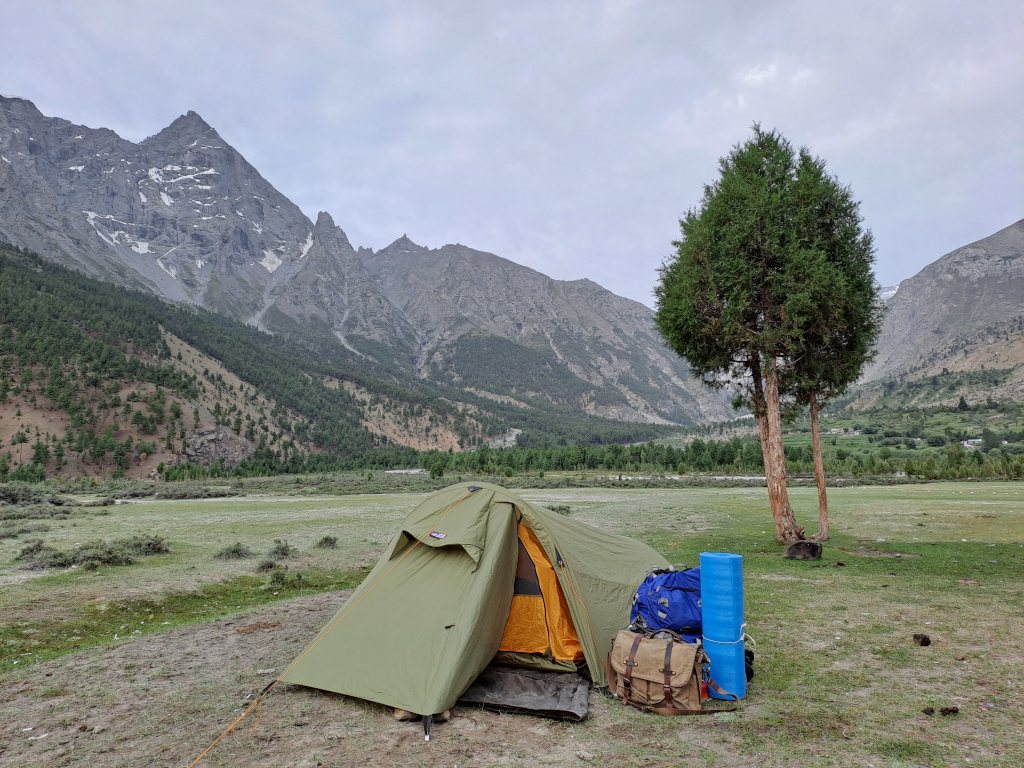
As night approached, the sun began to set and the river became too dark for the fish to see the lure. In the Summer season during rising temperatures, the abundant melting glaciers bring loose sediment from the rocks making the water darker in nature. There are springs uniquely bringing crystal clear water out of the mountain ideal for fishing because the fish can most clearly catch the bait and lure during their hunting time. The locals will cook and deep fry any trout fish caught and serve dinner for their honored guests.
Our night ended around a campfire socializing over cups of chai and cooked potatoes for dinner. As the sunset, the sky transitioned to a sea of sparkling lights performing a night show around the immense Milky Way Galaxy. The whole area turns into a microcosm of the universe as the enormous mountains shroud the valley from the rest of the demanding world. The captivating night sky stole our attention for hours before calling it a night.
Sun rays sneak over the glaciers sitting on the mountain peaks at the tremendously early hour of 4:00 am. The shepherds and livestock follow a circadian rhythm starting their day at the same time the sun rises. Distant moos and sheep herding begin and the abundant wildlife and countless plant species flourish to life. A few hours into the most serene, vibrant morning of my life and a cup of chai brewing in the fireplace filled me with peace and tranquility far from any other moment in Northern Pakistan. The breathtaking morning view came to a close at our departure from Basho Valley at 8:00 am. Being able to cherish all the experiences throughout the two-day adventure made this detour on our trip an unforgettable memory for the rest of our lives.
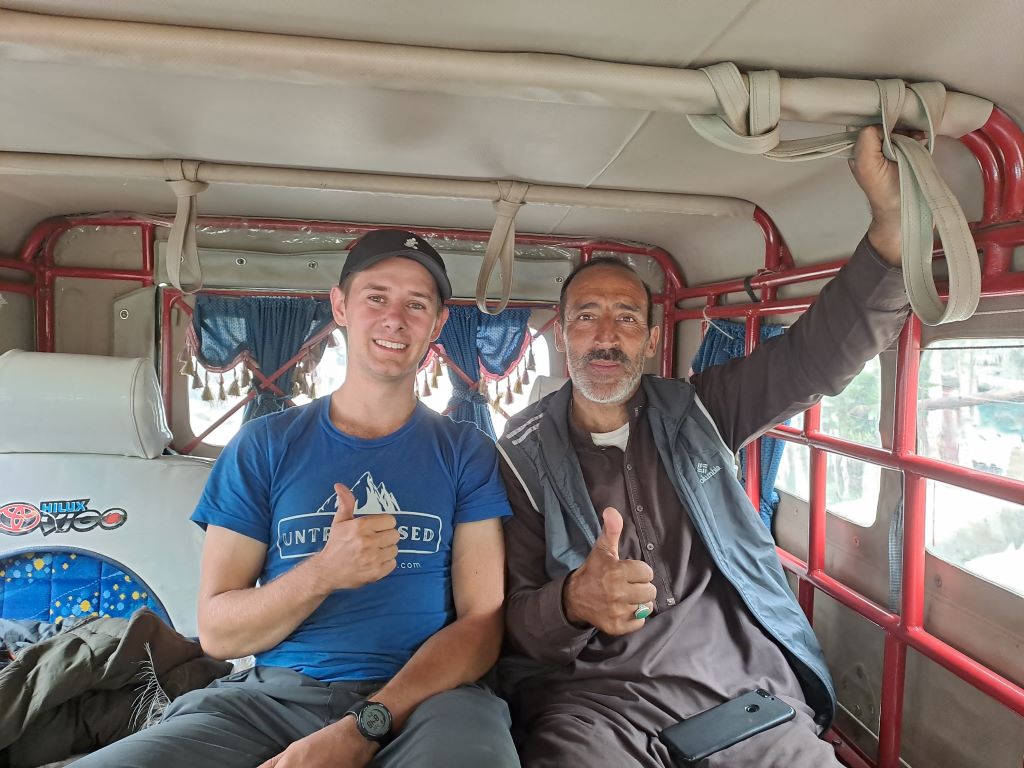
Basho Valley, Pakistan stands as a superlative hidden treasure unlike any other experience while camping in Pakistan. There are many engaging activities from horseback riding to fishing and trekking to camping. A weekend getaway transforms from an unplanned detour to a paradise on earth. The virgin juniper forests encompassing the streams and rivers walled off by lively valleys result in one of the most stunning natural wonders in Northern Pakistan.
The cosmic night sky unpolluted by nearby lights and mountain peaks sheltering in crystal clear outlook of the numerous stars and Milky Way Galaxy creates awe-inspiring views worth staying up for.
Adventure is calling to come and discover the unforgettable experience of Basho Valley, Pakistan. Be sure to check out the Karakoram Highway Itinerary for more insights on traveling through this amazing region.
